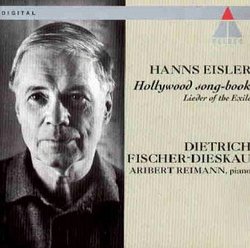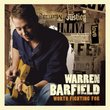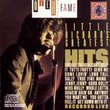| All Artists: Eisler, Fischer-Dieskau, Reimann Title: Hanns Eisler: Hollywood song-book - Lieder of the Exile (Teldec) Members Wishing: 0 Total Copies: 0 Label: Teldec Release Date: 6/6/1995 Album Type: Import Genres: Special Interest, Pop, Classical Styles: Vocal Pop, Historical Periods, Modern, 20th, & 21st Century Number of Discs: 1 SwapaCD Credits: 1 UPC: 745099745929 |
Search - Eisler, Fischer-Dieskau, Reimann :: Hanns Eisler: Hollywood song-book - Lieder of the Exile (Teldec)
 | Eisler, Fischer-Dieskau, Reimann Hanns Eisler: Hollywood song-book - Lieder of the Exile (Teldec) Genres: Special Interest, Pop, Classical |
Larger Image |
CD DetailsSimilar CDs
Similarly Requested CDs
|
CD ReviewsIncredible songs, like a document of time scarecrow | Chicago, Illinois United States | 01/28/2005 (5 out of 5 stars) "Reimann has been Fischer Dieskau's(hereafter DFD) accompanist for decades now in fact DFD commissioned the former for their powerful collaborative opera on Shakespeare's "Lear". Hearing DFD nice,seemless pulsive smooth baritone to render these serious dark tunes of Eisler has a kid of irony. Eisler is like the Schubert of the 20th Century, he however(unlike Schubert) had lived through the darkest pages of hatred inhabiting the human spirit, the rise of facism in Europe, terror bombings,London,Dresden, Hiroshima, Nagasaki,genocide,euthansia,in short the beginnings of what Foucault later came to speak aboutthe dimension of the bio-politic.
Much of these songs here, the entire "Hollywood Songbooks" Eisler reveals his gift, his work and perserverance for being able to set any text convincingly, any arduous turn(s) of phrases of his friend-poet Bertold Brecht he found as an aesthetic challenge for the art song. Eisler's piano accompaniments can be studied by themselves for what they provide how they move the drama of the song along in subtle formations and economy of means.An unforgettable rhythm usually propells a melodic tunr, very sparse texture, only one or two voices, and punctuation. The "Gedektafel fur 4,000 Soladaten. . . " is a miniature portrait of a tragic event of the drowning of soldiers, here however the song is one unrelenting crescendo forward with pulsed ostinato chromatic chords, no real melody in the piano more as a declamation in the voice. My other favorite is "An den kleinen Radioapparat" "To my Radio" this was the little box that quite literally in Nazi Germany was the difference between life and death in knowing specific information of policies implementedincursions, landings roundups. The tune here again is a miniature, quite simply disarming in its progression from d major to b minor. It is quite touching, a reminscence that we have in fact lost in the post-modern period. We no longer reflect on things,merely consume them,and not with the inherent Virilio-an speed of data today."Elegie 1939" reveals the apparant darkness of the times, text of Brecht says that if a man smiles it because he hasn't heard the news yet, something like Iraq today I beleive. These songs have this timeless dimension to them. Before he was deported by the House Committee on un-American Activities, (Sen McCarthy's opportunist career-building witch-hunts) Eisler lived in exile in and around Los Angeles, supported himself in the film industry writing film scores. The "Elegien 1&2 " from the Hollywood Songbooks are here, again text of Brecht, here the threadbare piano has its own restrained hidden beauty, as if beauty is denied and is itself in exile.All these Songs have terrible subject matter from suicide,to points of darkness to relief in the lifeworlds as the "radio" previously mentioned, also life in exile, and hope,peace as well. The more indulgent sides to Eisler are here in the "Holderlin Fragments" this is another side to Eisler one more concerned with past references, and coming to terms with duration, time, of German history, when it is transgressing, art is a means of sustaining propping up for a time." |





